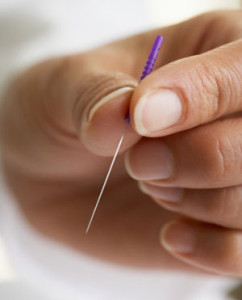
When you have diabetes, managing your diet can be strenuous. Managing your diet when you're diabetic and eating away from home is even more challenging. When restaurants and fast food are the only options, how do you know what to choose? Certainly eating nothing is not an option, since that's dangerous to any diabetic. But what's the best choice with limited options? Here are a few tips to follow when eating out on a diabetic diet:
1. Ask What. Whenever you're compelled to eat from a menu that you're unfamiliar with, ask yourself what the true content of the food is. Consider what the carbohydrates are: are they complex, do they contain any fiber and if so to what extent? Fruits and veggies are the best type of carbs, but you do need to include whole grains for their unique nutritional value. Next, what type of fat is in the food you're looking at? What oils have been used to cook this food, and how much has been used? Some oils have a higher caloric impact, while others are more processed and may be absorbed into your system more quickly. Finally, ask what type of protein is involved in what you're eating. You want to eat lean meats, and if eating vegetarian, consider that beans, legumes, and so on aren't complete proteins in and of themselves. Food combining becomes very important when you're eating vegetarian to ensure that you get the right amino acids, i.e. the building blocks of protein. Eat legumes with grains, nuts or seeds, grains with legumes or dairy, and nuts and seeds with legumes.
2. Ask When. How often to eat is an essential element to eating with diabetes. When eating out, it becomes more difficult, especially if you manage your diabetes with insulin. First of all, do not take your insulin at home and then go out to a restaurant – you can't control delays in your food delivery when you're out, so take your medication with you. Secondly, consider portion sizes with the frequency of your meals. Try to avoid eating too much at one time, and instead take some food home with you when appropriate. You will often not know truly how big the meal you're ordering is until it's in front of you, so be prepared to ask for a doggie bag to avoid throwing your blood glucose levels out of whack.
3. Ask Who. Whoever's food you're eating, i.e. what type of cuisine it is, can present certain challenges for you if you're diabetic. For example, Italian food often involves pasta, sauce, and occasionally free bread. Always opt for whole grain pasta, limit your bread intake to one serving, and try to order sauces that are free of fattening things like dairy, or bacon. With Tex-Mex food, it often comes loaded with cheese and/or sour cream, so be careful how much you consume. Plus, those tasty dishes can often be deep fried, so make sure you're aware of how they've been prepared. Asian food is much more popular these days, but alas this cuisine has become more westernized. All-you-can-eat-buffets are common, and more and more things are being deep fried. Plus, those delicious Asian sauces often contain tons of hidden sugar.
The bottom line is simply to think before you eat. Luckily, eating out is still an option – just get educated about what you're going to ingest, when you're going to do it, and where some of the hidden calories might come from. You never know, you might help out some friends with your new-found knowledge!
By Richard Lobbenberg, Acupuncturist and TCM Practitioner





